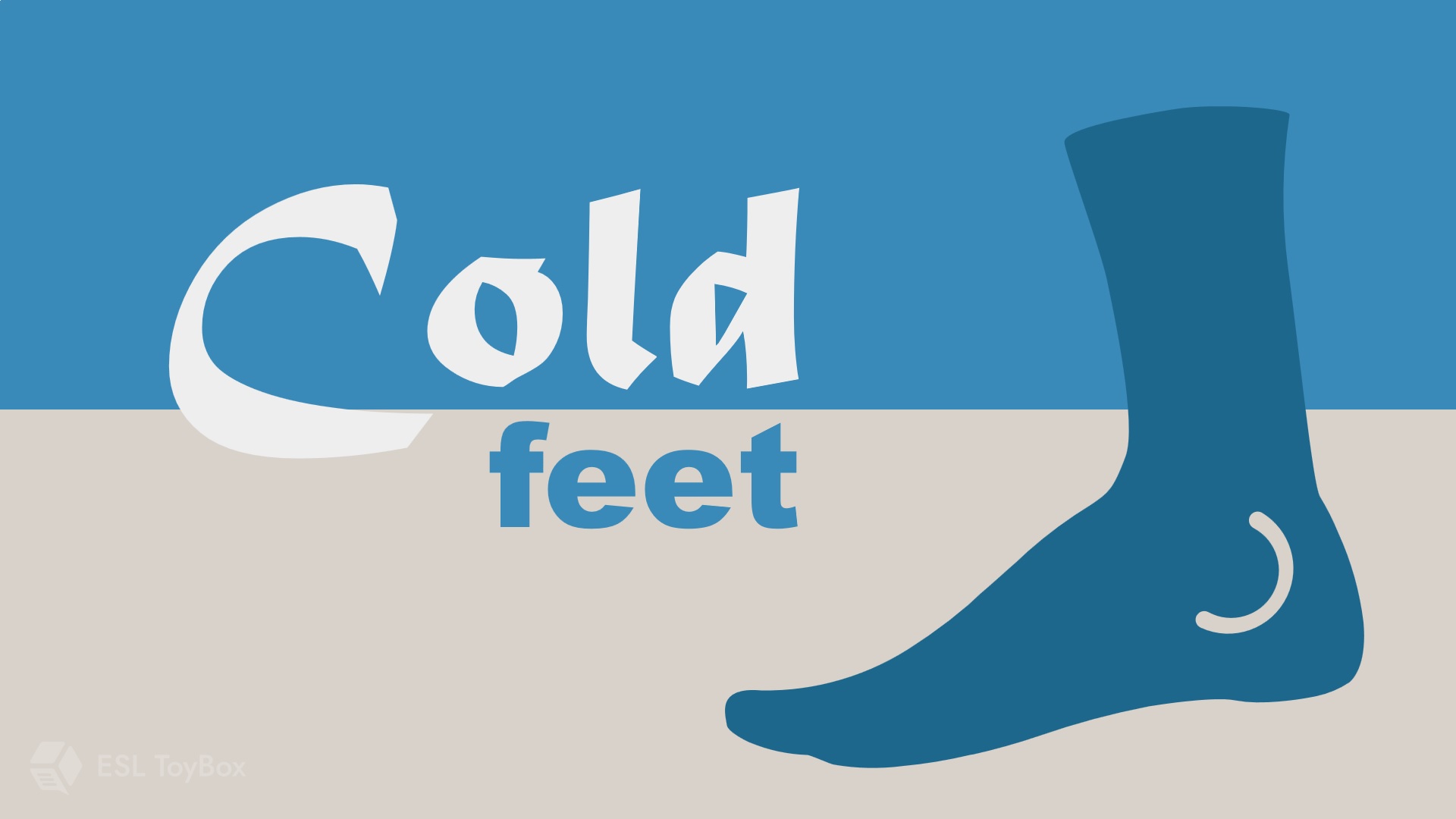Cold Feet
Bad at Dating
I’m not very good at dating. I have been single for a while, but I am shy for meeting people. I’m at a disadvantage, as well, because I don’t like going to bars or being around people. Covid made things more difficult but now that the restrictions are lifting, so I should really try dating again. I think my best bet is internet dating. The problem is that I get cold feet for signing up and downloading the apps. I blame my lack of success in dating as the reason. It seems like a waste of time, and I have other things I can do. I would rather spend my time editing photos and videos or writing for ESLToybox. I find it more rewarding to have something tangible at the end of the night. A friend recently called me out on the dating app stuff. Maybe I need to pull the trigger and download an app.

Meaning
Cold feet means that you are hesitant to do something. Maybe you had a plan, but you are worried about it, and you might not do it now. In that case, you have cold feet. It is a loss of confidence. It is most often used in relation to marriage. Sometimes a man or woman will get cold feet before the wedding. They will have doubts leading up to the wedding day.
Example: I planned to buy a new car but when I got to the dealership, I got cold feet.

Origin
Poor
Cold feet is usually attributed to Stephen Crane who used it in his 1896 book, Maggie: A Girl of the Streets. However, there is evidence of the phrase dating back to Ben Jonson 1605. He referenced a Lombard (an Italian dialect) proverb, “Let me tell you: I am not, as your Lombard proverb saith, cold on my feet; or content to part with my commodities at a cheaper rate than I am accustomed: look not for it.” He is saying that he is not poor. So, cold feet originally meant poor. It may have been a phrase borrowed from German. In the 1800s, there was a phrase used by Presbyterian that said, “Man cannot be converted while suffering from cold feet or an empty stomach.” In other words, to get people to join the region, you first have to give them food and money.
Gambling
You might notice that today’s meaning, hesitant, is different from the original meaning, poor. It is not certain when the meaning changed exactly, but there is a theory related to gambling. This idea shows up in an 1862 German novel, Seed Time and Harvest, describing card gamblers. As the story describes, when a gambler has cold feet (loses their money) they have to reluctantly leave the table. This may have led to cold feet meaning a loss of confidence. Mentalfloss cites an 1805 article in The Republican-Journal (Wisconsin) with the earliest example of cold feet used in relation to gambling. Another idea is that poor people could not afford shoes. So, they had cold feet. Cold feet was also used in militaries in the late 1800s. If a soldier had frostbite, they could use that as an excuse to get out of military service. They were called cold footers.
Reluctant
The first time cold feet was used as an excuse to get out of an obligation comes from an 1884 student publication. It is a short story about a woman who doesn’t want to tell her boyfriend why she won’t marry him. Eventually, she tells him it is because she has cold feet. It was used in a comical sense.

See Also: Tie the knot, Starting off on the right foot, Shoot yourself in the foot, Put your best foot forward.
For more English phrases and quotes, follow me on Facebook:
https://www.facebook.com/ESL-ToyBox-112152010890485
Resources:
https://slate.com/news-and-politics/2005/05/when-did-we-get-cold-feet.html
https://writingexplained.org/idiom-dictionary/getting-cold-feet
https://www.mentalfloss.com/article/645096/why-do-we-say-people-get-cold-feet-wedding
https://grammarist.com/idiom/cold-feet/
https://www.theidioms.com/cold-feet/
http://www.saywhydoi.com/cold-feet-meaning-and-origin-why-do-say-we-get-cold-feet/


